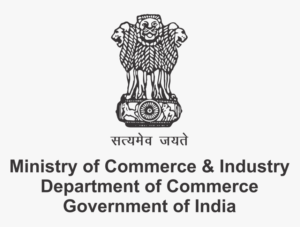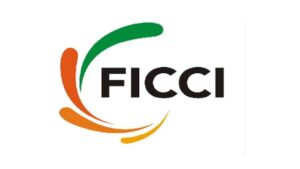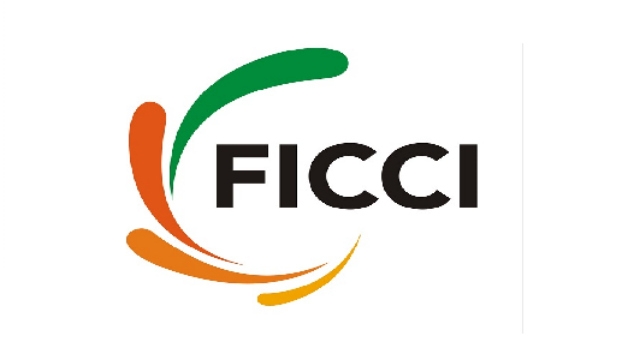Mr Marcos Troyjo, President, NDB at the Plenary Session with BRICS Business Council National Chapter Chairs
- NDB has the highest credit rating assigned to any multilateral bank established solely by emerging economies: Marcos Troyjo, President, NDB
- Local presence of NDB in India would expand the scope of its engagement with Indian businesses as well as create opportunities for expanding the project pipeline for the NDB: Onkar Kanwar, Chair, BRICS Business Council
- Enabling and accelerating the state’s knowledge and innovation ecosystem is key to investment in state: Pooja Kulkarni, MD & CEO, Guidance
Chennai, 21 August 2021: Mr Marcos Troyjo, President, NDB at the Plenary Session with BRICS Business Council National Chapter Chairs said earlier this week that the alignment of this year’s BRICS Business forum with NDB’s work underscores the potential we have for further collaborating with the BRICS Business Council. NDB has more than 70 projects in all member countries, and the project approval is nearly US 30 billion dollars. The bank supports strategic infrastructure projects addressing BRICS countries core development needs. NDB is also contributing to the achievement of sustainable development goals and sectors like transport, urban development, irrigation, clean energy, social infrastructure, and environmental efficiency are all within our scope, he added.
Mr Marcos Troyjo further stated, “The NDB enjoys today the highest credit rating assigned to any multilateral bank established solely by emerging economies. Meeting the sustainable development agenda 2030 necessitates large-scale & long-term investments by countries in physical, social & digital infrastructure and therefore, we map the contributions of each of our investments to fulfilling the commitments made by our member countries under the 2030 agenda.”
Mr Onkar Kanwar, Chair, BRICS Business Council India Chapter, said, “Sustainability is at the core of NDB’s operations as the bank completes its first five-year cycle. It has approved more than 70 projects worth nearly US 30 billion dollars across all BRICS countries. Green and clean energy has always been a key focus on NDB operations, and the bank has approved 15 clean energy projects in the last five years, many of which are focused on renewable energy. We also hope NDB will serve as a catalyst in other priority areas like infrastructure and agribusiness. India is currently in the process of setting up a Development Finance Institution, called National Bank for Financing Infrastructure & Development, which is primarily aimed at funding large infrastructure projects. Learnings from NDB’s own experience can be extremely useful in successful operations of the DFI being set up in India.”
“Over the years, the New Development Bank has also expanded its network by establishing regional offices in South Africa, Brazil and Russia. We understand that a regional office in India is also under works this year. We are eagerly looking forward to this development. We believe that a local presence of NDB in India would expand the scope of its engagement with Indian businesses as well as create opportunities for expanding the project pipeline for the NDB,” he added. Mr Jackson Schneider, Chair, BRICS Business Council Brazil Chapter, said, “We have noticed an increase in the number of companies seeking ESG certification in Brazil and, according to Bank of America, in the first quarter of 2021 Brazil issued 79% of the total green bonds and sustainability-linked bonds raised in Latin America, which also demonstrates the engagement with this agenda. As a company, we recognize the urgency of the climate crisis and are fully committed to a more sustainable future. To do so, we have included ESG as one of the pillars in our strategic plan ‘Fit for Growth’, aligning business strategy with social responsibility and environmental practices, to achieve the aviation industry´s goal of net-zero carbon emissions by 2050.”
Mr Jackson Schneider, Chair, BRICS Business Council Brazil Chapter, said, “We have noticed an increase in the number of companies seeking ESG certification in Brazil and, according to Bank of America, in the first quarter of 2021 Brazil issued 79% of the total green bonds and sustainability-linked bonds raised in Latin America, which also demonstrates the engagement with this agenda. As a company, we recognize the urgency of the climate crisis and are fully committed to a more sustainable future. To do so, we have included ESG as one of the pillars in our strategic plan ‘Fit for Growth’, aligning business strategy with social responsibility and environmental practices, to achieve the aviation industry´s goal of net-zero carbon emissions by 2050.”
Mr Sergey Katyrin, Chair, BRICS Business Council Russia Chapter, said, “For the BRICS countries, the development of ‘digital’ is one of the priorities, which is determined by national plans and strategies implemented over the past few years. We are all interested in building a digital economy, digital infrastructure, exporting our products and solutions, ensuring national security, digital sovereignty, which has recently acquired special emphasis. It is extremely important to develop a unified position in the field of cybersecurity and the protection of personal data of its citizens. Acceleration of the process of mutual recognition of electronic documents for entrepreneurs is what business is waiting for today. Even mutual recognition of an electronic digital signature on the scale of the BRICS countries will make a great effect in the medium term.”
Capt. Xu Lirong, Chair, BRICS Business Council China Chapter, said, “Adhering to the concept of ecological conservation and green low-carbon circular development, China has implemented a series of policy measures to optimize industrial structure, build a low-carbon energy system, develop green buildings and low-carbon transportation, and establish a national carbon emission permits trading market through technological and institutional innovation. All these efforts are made to ensure that it will achieve the targets of peak emission and carbon neutrality. We can use the BRICS Business Council as a platform to promote sustainable corporate development and business communities in the BRICS countries can strengthen joint technological research, accelerate energy conservation and emission reduction to grasp the market opportunities for new energy to achieve sustainable development of enterprises.”
Ms Busi Mabuza, Chair, BRICS Business Council South Africa Chapter, said, “South Africa is in a better position as far as supplies are concerned and the vaccine availability has improved markedly with our government joining hands with the private sector to make it widely accessible. This however is not the case for other parts of the continent. We welcome the $600 million pledge by governments of France, Germany and the US and the World Bank to support Aspen, one of our pharmaceutical companies, to produce the Johnson & Johnson vaccines for the rest of the continent.”
Speaking on driving investment in the state of Tamil Nadu, Ms Pooja Kulkarni, MD and CEO, Guidance Tamil Nadu, said, “As an agency that monitors and develops policy for investment opportunities, we welcome and look forward to handholding the investors to set up operations in Tamil Nadu, the second-largest economy in India with 8% of the National GDP. To evolve Tamil Nadu into the most preferred destination for investors, we are working towards enabling and accelerating the state’s knowledge and innovation ecosystem into India’s foremost hub for high-tech industries.”
She further added to creating a conducive environment for Industry and Research Institutions focusing on cutting-edge research across various industries. Additionally, Ms Kulkarni emphasized that priority should be given to deciding on incentives and subsidies to the EV and Electronics Hardware Manufacturing sectors.
To further strengthen the trade and investment relations within BRICS, the Department of Commerce, Government of India along with FICCI and supported by the BRICS Business Council, organised the 2nd BRICS Trade Fair, which is the largest platform for Indian companies to meet and network with counterpart businesses from Brazil, Russia, China and South Africa. The organizers have informed that 600+ companies from the BRICS Nations showcased their products and services at the expo. 18 Investment agencies & states/provinces showcased investment opportunities in their respective regions.
The BRICS Trade Fair 2021 witnessed the participation of over 5000 delegates, and the event had over 2500 Pre-fixed B2B meetings. The Trade Fair also saw over 8000 Virtual booth visits by the business delegates, which attributed to over 2000 business interactions. Also, the virtual exhibition platform witnessed over 3000 Business card exchanges and had representation from varied sectors from the BRICS member countries, with 610 exhibitors from the five countries.
About Federation of Indian Chambers of Commerce & Industry (FICCI):
A non-government, not-for-profit organisation, FICCI is the voice of India’s business and industry. From influencing policy to encourage debate, engaging with policy makers and civil society, FICCI articulates the views and concerns of industry. It serves its members from the Indian private and public corporate sectors and multinational companies, drawing its strength from diverse regional chambers of commerce and industry across states, reaching out to over 2,50,000 companies. Further information is available at: http://ficci.in




